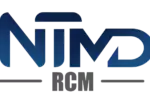The need for more technologically Modernizing medicine adept and efficient patient care has led to a drastic change in the healthcare sector. Innovation in Revenue Cycle Management (RCM) is no exception to this phenomenon. Nowadays, the automation of processes in medicine through advanced RCM systems has become pivotal for the operational efficiency of medical practices, hospitals, and other healthcare providers.
The timely and accurate reimbursement of services provided is ensured by revenue cycle management (RCM). However, billing and coding errors, denied claims and outdated billing systems lead to significant losses in revenue. Healthcare providers stand to improve patient satisfaction and cash flow and reduce administrative burdens with modern RCM solutions.
This blog discusses the latest trends in Modernizing medicine medical billing, how advanced RCM solutions are changing the narrative in healthcare, and the importance of adopting a technological approach.
The Incorporation of Technology in the RCM Process: Modernizing Medicine
In recent years, Modernizing medicine RCM has gone through numerous changes. At the start patients would write their insurance details down in a book at the reception, and subsequently, the billing staff would work on the assigned list of patient payment documents. These steps were tedious and repetitive and contained a lot of room for errors, which caused delays in payments and revenue leakage.
As healthcare organizations undergo a digital transformation, there has been an adoption of technology-driven RCM systems that automate billing and increase accuracy. Contemporary RCM systems use AI, automation, and data analytics, enhancing profitability throughout the revenue cycle, beginning with patient registration and concluding with payment collection.
Obstacles with Traditional Modernizing Medicine Medical Billing
Although technology is ever-changing, many healthcare providers continue to face challenges with complex billing procedures. Some challenges are:
1. Claim Denials and Revenue Losses
Providers face a huge problem dealing with the denial of insurance claims. Claims are often denied due to coding mistakes, patient information shortages, and policy non-adherence. Revenue losses due to the lack of an efficient RCM system can severely affect healthcare providers.
2. Administrative Burden on Staff
Manual billing Modernizing medicine manually relies on lots of paperwork, personnel, and follow-up. This results in administrative exhaustion, high labor spending, and low productivity.
3. Compliance and Regulatory Issues
With changes to standards set for Modernizing medicine medical billing, providers have to keep track of HIPAA regulations, coding standards of ICD-10, and payer policies to remain compliant. Not complying can have repercussions such as legal proceedings and monetary fines.
4. Slow Payment Processing
Insurance providers’ delaying reimbursements pose cash flow problems for healthcare organizations. Increased complexities in payment tracking, reconciliation, and revenue cycle management add to these inefficiencies.
5. Challenges in Payment Collection from Patients
The emergence of high-deductible health plans (HDHPs) places more financial responsibility on patients. There is the absence of straightforward pricing and simple payment methods, which leads to payment delinquencies and loss of revenue.
How Advanced RCM Solutions Are Transforming Healthcare
Modern RCM solutions use advanced technologies that augment billing, financial, and patient satisfaction efficiencies to resolve these issues. This is how they are transforming the healthcare industry:
1. Automated and AI Billing
Claim scrubbing, coding, and eligibility verification are done automatically with AI-powered RCM platforms. Automation enhances accuracy, speeds up claim processing, and improves adherence to payer policies. Providers are also able to utilize AI-powered predictive analytics that highlights possible claim denials from repayable revenues before they are denied, thus avoiding revenue loss.
2. Remote Access Revenue Cycle Management (RCM) Modernizing medicine Systems
RCM solutions Modernizing medicine that is offered on the cloud enables healthcare organizations to access and control revenue cycle operations anywhere and anytime as long as there is access to patient files, billing documents, and payment documents. There is better interaction among billing staff, providers, and insurance companies because of these systems.
3. RCM Integrated with EHR
The integration of Electronic Health Records (EHR) with RCM eliminates data silos enabling communication between clinical and financial workflows thus ensuring appropriate medical billing, better management of patient records, and speedy reimbursements.
4. Financial Insight Data Analytics
Advanced RCM solutions Modernizing medicine utilizes big data analytics techniques to assist healthcare organizations in monitoring their financial performance, payment patterns, and revenue cycle bottlenecks in real-time. This information can enable providers to optimize revenue opportunities and enhance revenue forecasting.
5. Enhanced Patient Payment Solutions
Modern RCM solutions Modernizing medicine includes the ability to make payments through online portals, mobile billing, and automated reminder systems. Patients are now able to gain financial responsibility through price transparency tools, which improve collections and reduce bad debt.
Benefits of Implementing Modern RCM Solutions
Healthcare organizations stand to gain a lot from adopting advanced RCM solutions, such as:
1. Increased Revenue and Cash Flow
Healthcare Modernizing medicine providers stand to gain from greatly improved cash flow and reduced revenue leakage through automating claim processing and expediting reimbursements.
2. Improved Operational Efficiency
Less manual work, such as billing and administrative tasks, increases the staff workload and allows them to focus more on patient care.
3. Higher Claim Approval Rates
Denials are reduced due to accurate claims submission made possible by AI-driven coding and real-time eligibility verification, increasing first-pass approval rates.
4. Better Compliance and Security
Data security, as well as compliance with HIPAA, HITECH, and other regulatory standards, is guaranteed with the use of cloud-based RCM platforms.
5. Augmented Patient Experience
Patients’ satisfaction and tendency to pay their medical bills on time are improved by providing clear billing statements, flexible payment methods, and price scaffolding.
The Future of Revenue Cycle Management in Healthcare
Artificial intelligence, blockchain technology, and predictive analytics will drive the future of RCM. The following are some trends that will define the subsequent stage of medical billing:
1. Predictive Analytics Driven by AI
AI will retain significant importance in forecasting claim results, tracking payment activity, and stopping unnecessary billing mistakes. Predictive analytics will assist healthcare providers in making better financial decisions.
2. Transactions Secured Using Blockchain
Healthcare payment and medical records management is anticipated to be transformed with the use of blockchain technology because it offers secure and tamper-proof transactions and better interoperability of data.
3. Patient Billing Support Using Automated Chatbots
Active chatbots will improve patient interaction by addressing their billing questions, offering payment support in real-time, and walking them through the portions of the financial obligations they are responsible for.
4. Models of Reimbursement Based on Value Provided
The change from fee-for-service to value-based care will require RCM solutions to make sure that patient outcomes and quality of care delivered are reported accurately for value-based reimbursements.

Conclusion
Revitalizing Modernizing medicine with sophisticated RCM solutions is no longer a choice but a requirement for every healthcare provider looking to streamline their revenue cycles, optimize their financial performance, and improve patient satisfaction. Healthcare organizations can now further enhance their business workflows and ease the administrative load hand in hand with a streamlined billing process for patients and providers through automation, AI, and cloud-based technologies.
With modernization in other industries, healthcare has to adapt as well. The adoption of advanced RCM solutions will assist with overcoming the financial hurdles and ensuring long-term growth.
Do you wish to Modernizing medicine in your healthcare practice’s RCM process? Reach out to us today and learn how our solutions can aid in the transformation of your revenue cycle!


